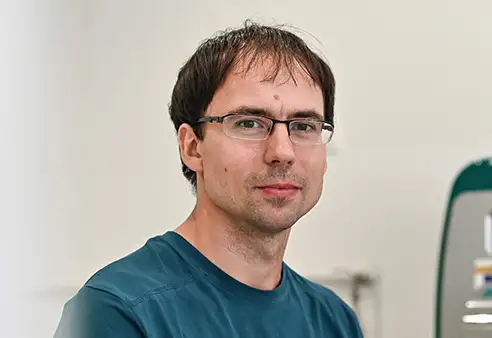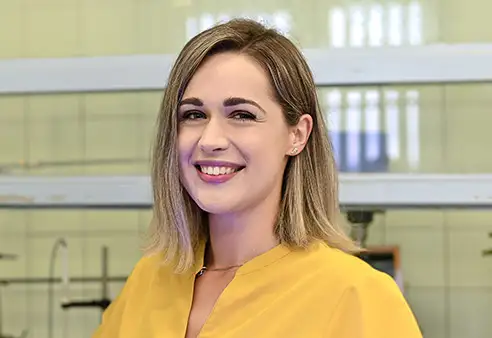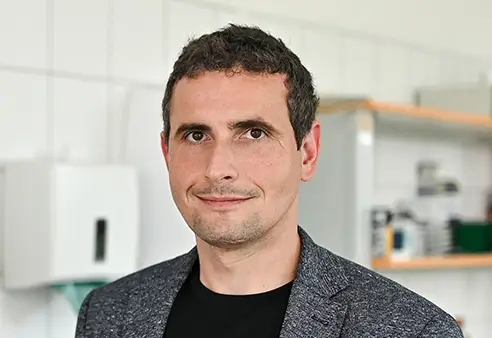Testing for Covid-19 as we know it may soon change thanks to electrochemical sensors. RNDr. Ivana Šišoláková, PhD., researcher from the Department of Physical Chemistry at Pavel Jozef Šafárik University in Košice is working on their development.
Ivana Šišoláková has been working on development of new types of electrochemical sensors for disease diagnosis since her doctoral studies. She works on the development of a sensor for the determination of insulin as a new approach for the diagnosis of diabetes. "Since diabetes is one of the most widespread and costly diseases, we are trying to develop a cheap, simple and effective way of testing that would reduce the current financial demands for diagnosis," explains the young scientist.
However, with the onset of the coronavirus pandemic, researchers have focused on developing a new type of electrochemical sensor for the diagnosis of viral diseases. A simple, fast and accurate test for Covid-19. How does it work? "There is a biological component on the surface of the sensor, which is being developed by our colleagues from the Institute of Biological and Ecological Sciences at Pavel Jozef Šafárik University in Košice," says Ivana Šišoláková. This biological component specifically interacts with the spike protein of the virus. Thanks to this, the sensor is really highly accurate, specific and is not affected by anything else in our blood.
The sensor works with a small portable device that connects to mobile phones, tablets and computers. Electric current flows through it, and by the change in current or the position of the current maximum, it is possible to determine whether or not you have a virus in your body. "The great advantage of these sensors is that we can also quantify the viral load you have in your body," adds the researcher. Their accuracy far exceeds antigen tests. The testing itself takes only a few seconds to show results.
In addition, they assembled a team of IT experts working on an application that complements the sensor. Thus, a patient would not have to be worried about assessing graphs, but would get information through it whether he/she is positive or negative. The aim of the researchers is to work towards the possibility of self-testing. They are currently entering the phase of clinical testing, but Ivana Šišoláková assumes that by the end of the year, their solution could be ready for patenting and subsequently commercially available.
Despite having received several offers to work abroad, she decided to stay in Slovakia. She likes our country and in her free time goes hiking in the Slovak mountains. Her husband and she have already reached all the mountain peaks in the Tatras. She recently fulfilled her dream and got herself a Samoyed puppy, so she doesn't have to worry about filling her free time anymore.



